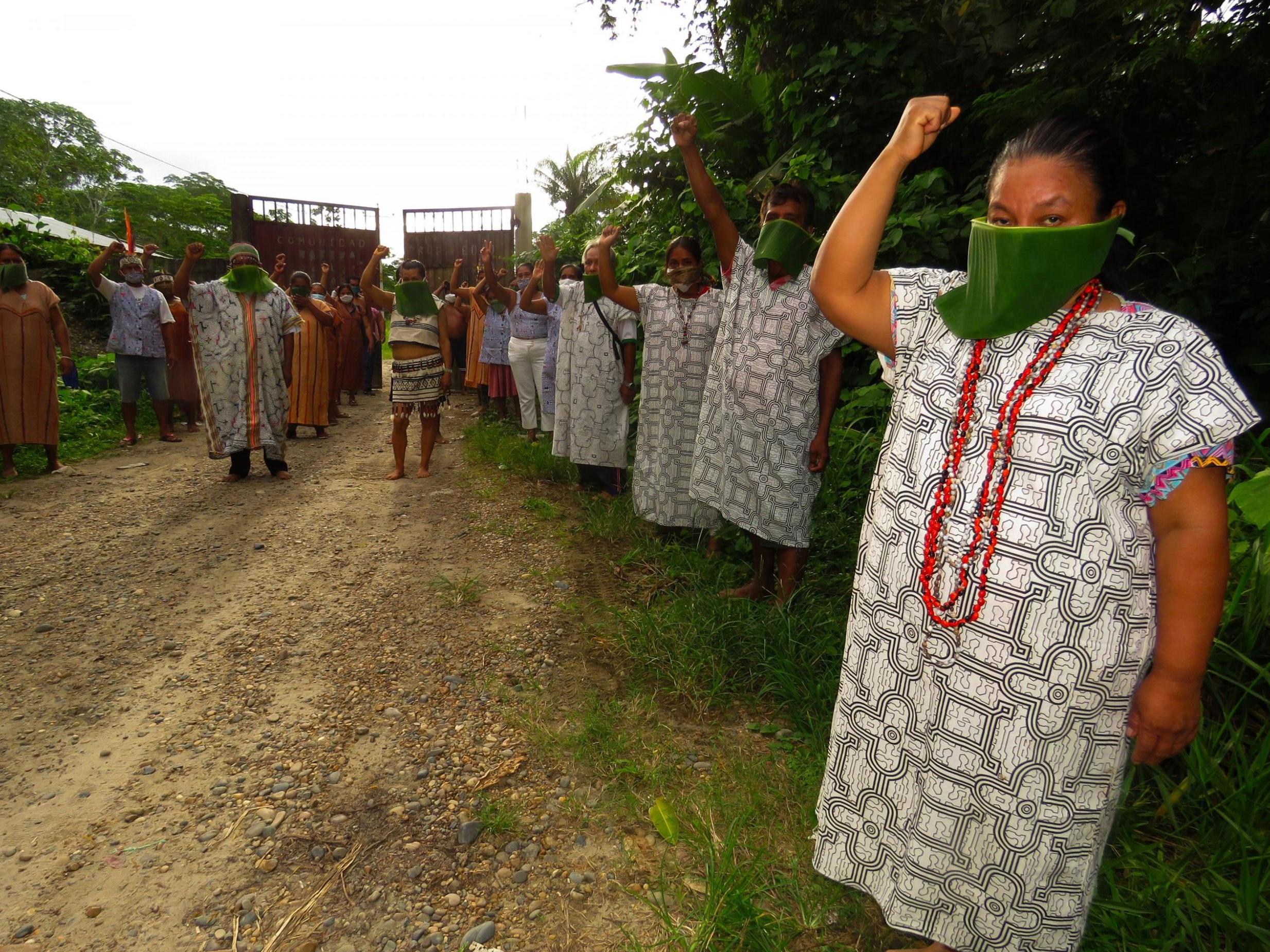Coronavirus in the Amazon: how indigenous communities are coping with the pandemic
The arrival of the disease is yet one more threat to the region’s peoples – and in the absence of social welfare or other economic support, the lockdown may be an even greater worry, write Nina Moeller and JM Pedersen

A 15-year-old boy from a remote region of the Brazilian Amazon, near the border with Venezuela, died of Covid-19 on 9 April. A member of the 35,000-strong Yanomami people, the boy was the first known death among Brazil’s indigenous communities in the current pandemic. There are now growing fears that Covid-19 will wreak havoc across the Amazon.
This fear is unsurprising, given that an estimated 90% of the original inhabitants of the Americas died as a result of European colonisation, especially through the infectious diseases that Europeans brought with them. Fragmented collective memories of deadly pandemics from the time of distant ancestors still circulate in stories of magical deaths caused by foreigners.
We have worked with indigenous communities and federations in the region since 2005, witnessing their continuing struggle against deforestation, and the wider fallout from relentless urbanisation – the very conditions that make zoonotic spillover and new infectious diseases more likely.
Well ahead of government action, indigenous federations across the Amazon launched extensive campaigns to mitigate the pandemic and its socio-economic consequences.
This is not a straightforward task. Amazonian people live varied lives, ranging from communities that are many days’ canoeing beyond the nearest roads to urban existences that are entirely dependent on constant cashflow for survival; from landowners to the landless; and from those who possess traditional knowledge of forest nourishment and medicines, to those who reject the old ways in favour of mobile phones and computer games. The impact of Covid-19 on indigenous peoples will be as varied as their circumstances.
For the few who still enjoy functional autonomy in remote communities, there is little change: the outside world is an ever-encroaching threat, and the longer isolation can be maintained, the longer cultural survival can be ensured.
Many Amazonian people are particularly vulnerable to infectious diseases. They are exposed to the effects of mining and oil extraction and institutionalised racism, which makes it harder for them to access good education, healthcare, and jobs.
Both legal and illegal resource-extraction continues despite the lockdown. Illegal operations are in fact expanding in the absence of an active resistance, disregarding travel restrictions and potentially increasing the spread of infection. Some suspect that illegal miners may have brought Covid-19 to the Yanomami.
We asked our network of connections in the Ecuadorian Upper Napo and the Peruvian Ucayali regions about local perceptions of needs and wants. While many are out of reach at the moment, having retreated to villages and communities without internet, the message from road-accessible Kichwa communities is unanimous: while concerned about the new disease, a much greater worry is posed by the lockdown. One traditional healer told us: “We have the plants to cure ourselves, but now that we are not allowed to go anywhere, we cannot earn any money.”
Many indigenous families need to bring produce to market in order to supplement their subsistence, fuel generators and canoes, service debts, and access phones or the internet. The lockdown prevents all this. In the absence of any social welfare or other economic support, this is as devastating in the Amazon as it is anywhere.
Among indigenous communities on the urban fringes in the Napo, there is a surge of interest in planting medicinal trees and plants in response to the pandemic. However, for the increasing number of indigenous families who do not have access to land – their territories invaded, degraded, and split into ever smaller parcels – the situation is catastrophic. Unsurprisingly, women and children suffer most, as alcohol consumption and domestic violence grow alongside boredom and desperation.
As we write, indigenous communities are taking matters into their own hands across Amazonia. They are closing down access routes and retreating deeper into the forest. Whenever possible they escape into ancestral territories, sometimes to places of cultural or spiritual significance.
Nina Moeller is an associate professor at the Centre for Agroecology, Water and Resilience at Coventry University; JM Pedersen is an honorary research fellow at the Centre for Agroecology, Water and Resilience at Coventry University
This article was originally published on The Conversation
Subscribe to Independent Premium to bookmark this article
Want to bookmark your favourite articles and stories to read or reference later? Start your Independent Premium subscription today.

Join our commenting forum
Join thought-provoking conversations, follow other Independent readers and see their replies